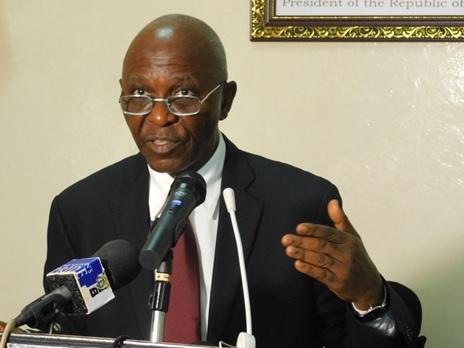‘Liberia Needs US$1 Billion to Fix Education’

‘Liberia Needs US$1 Billion to Fix Education’
— “The money is intended to address education at the regional and county levels. We want to make quality education available to everybody, regardless of economic status, religion, and among others,” Minister Sonii said.
In recent years, there’s been global support for revamping Liberia’s education system, but it seems that much remains to be done if the Minister of Education’s words are anything to go by.
What is needed, according to Minister D. Ansu Sonii, is the support of a whopping US$1 billion, which is needed to address the widespread and age-old problem of lack of access to quality education in many parts of the country.
The money, the minister said, would go to upgrading schools, training teachers, and providing resources such as textbooks. The hope is that by providing quality education, Liberians will be better equipped to compete in the global economy, reduce poverty, and improve their standard of living.
At present, the country’s educational system is struggling to overcome the issue of poor quality. Many schools lack basic resources, trained teachers, and proper facilities.
But for Sonii, the problem can be solved with US$1 billion in funding, which he says would go a long way in providing educational programs that prepare students to compete in the 21st century.
The minister noted that, at this point, the country cannot afford to let future generations of Liberians fall behind. As such, investment is needed so that “our young people can compete with the best in the world.”
“The money is intended to address education at the regional, and county levels. We want to make quality education available to everybody, regardless of economic status, religion, and other factors,” Sonii said.
“It will be invested to ensure equal and inclusive access to quality education; the development of skills that meet the demand of the labor market; and the upgrade of school infrastructure as a means of creating a conducive learning environment,” the minister said.
The Minister of Education made these remarks at an ongoing joint education sector review in Ganta City, Nimba County, where the issue of funding was highlighted significantly. At the event, he and stakeholders in the education sector acknowledged that without a strong education system, Liberians would be left behind in an increasingly competitive global economy — hence the priority of revamping the sector.
The education system in Liberia has long been a source of concern for many, given its recurrent challenges. Many schools lack basic resources such as textbooks, trained teachers, and proper facilities. As a result, many students do not perform well in standardized tests and tend to be stunted in some of the most basic educational requirements.
According to a report by the United Nations Children's Fund (UNICEF), many children in Liberia do not have access to education due to a shortage of schools, particularly in rural areas.
The report notes that as many as 60% of children in rural areas are not enrolled in school, and, even those who are, often receive an inadequate education due to a lack of resources.
Also, many teachers in Liberia struggle to effectively teach their students. This further exacerbates the issues of poor quality education and high dropout rates. Experts say that addressing these challenges will require significant investment in the education system.
This could include increasing funding for schools, providing better training for teachers, and addressing the cultural and social barriers that prevent many children, especially girls, from accessing education.
Meanwhile, Vice President Jewel Howard Taylor, in her opening remarks at the program, said the Liberia educational sector needs substantial investments, and even half of the $1 billion requested would make a significant impact.
“I believe if we are able to collect the money we need with the support of the President, the legislators, and the partners to raise the money, and even if we can jump-start half of it, we will go very far,” Taylor said.
This year’s Joint Education Sector Review is held under the theme, “Transforming Education for National Development and Growth with the objectives of achieving milestones in the social contract through the provision of quality, relevant, inclusive, and gender-responsive education; transforming education to achieve national development growth”.
